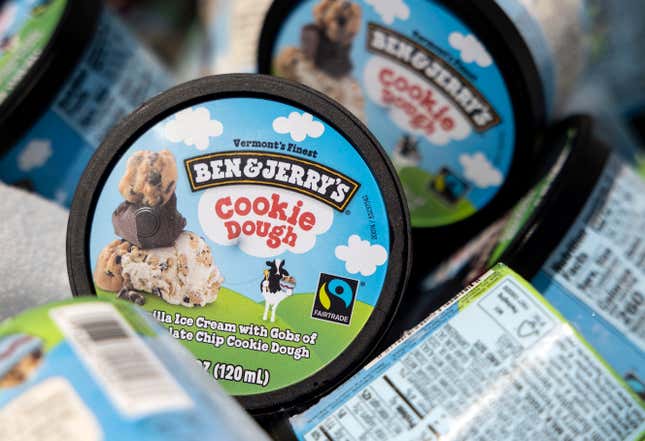
After decades of serving customers ice-cold treats, Unilever is spinning off its line of ice cream brands — including Ben & Jerry’s— and cutting 7,500 jobs globally.
The British company said Tuesday that it plans to immediately begin separating its collection of brands — including Magnum, Cornetto, and Wall’s — and will complete the separation by the end of 2025. Together, Unilever’s collection of ice cream brands delivered $8.6 billion in sales last year. The unit of brands will “most likely” be de-merged, but Unilever said it would consider other alternatives.
The job cuts will impact about 5.9% of Unilever’s 128,000-person workforce. Total restructuring costs are anticipated to be about 1.2% of overall turnover over the next three years.
“The separation of Ice Cream and the delivery of the productivity program will help create a simpler, more focused, and higher performing Unilever,” Unilever Chair Ian Meakins said in a statement. “It will also create a world-leading ice cream business, with strong growth prospects and an exciting future as a standalone business.”
Unilever stock jumped 6% in premarket trading Monday before slipping to a 3% gain.
The separation is part of an ambitious cost-cutting program devised by Unilever CEO Hein Schumacher, who took the top job in January 2023 and revealed the plan last October. His predecessor, Alan Jope, was criticized for allowing the company’s portfolio to grow to about 400 brands.
The plan calls for Unilever to focus on making its core 30 “power brands” more profitable. Unilever owns many household brands, including Axe, Dove, and Hellmann’s. In recent months, Unilever has sold off several brands as part of its restructuring, including Dollar Shave Club and Elida Beauty. It has also acquired the premium hair care brand K18.
The company has noted that its ice cream brands have a different operating model than the other brands in its portfolio. Unilever said Tuesday that spinning off the ice cream brands would give it higher margins. Once the separation is complete, it aims to deliver mid-single-digit sales growth and modest margin improvement.
“Simplifying our portfolio and driving greater productivity will allow us to further unlock the potential of this business, supporting our ambition to position Unilever as a world-leading consumer goods company delivering strong, sustainable growth and enhanced profitability,” Schumacher said in a statement.